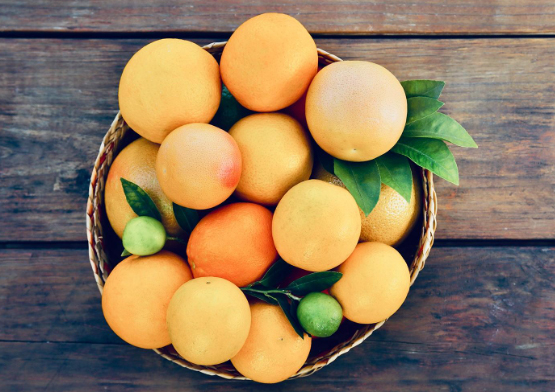Want some good news? The same foods that medical professionals say is healthy for aging eyes are the same foods that are good for your heart and overall health. Certain vitamins and minerals that reduce the risk of eye diseases keep the body healthy overall while boosting immunity and improving brain function.
Getting enough of these nutrients can play an important role in preventing: cataracts, age-related macular degeneration, glaucoma, and dry eyes. Try incorporating some or all of these vision-healthy foods into your diet!
- CITRUS FRUITS + BERRIES
Vitamin C is crucial for boosting immunity and reducing the chances of developing cataracts by keeping the bloody vessels in your eyes healthy. Age-related cataracts are the leading cause of vision impairments around the world.
- FISH
Salmon, tuna, mackerel, and sardines have a high fatty acid content, including Omega-3 Fatty Acids EPA and DHA (healthy fats) which contribute to healthy retinal function and can reduce the risk of chronic dry eyes. Bonus: Omega-3 Fatty Acids help to reduce risk of coronary heart disease, improves brain function, and the immune system.
- COLORFUL FRUITS + VEGETABLES
Having Vitamin A in whatever foods you can find is vital to eye health because it helps the surface of the eye and can help prevent eye infections. Any colorful fruit is full of Vitamin A like mangos, apricots, oranges, cantaloupe, bananas, as well as colorful veggies like squash, peppers, sweet potatoes, and yes….carrots.According to the World Health Organization, Vitamin A deficiency is the leading cause of blindness to millions of children and adults worldwide.
- NUTS
Nuts like almonds, hazelnuts, and peanuts are full of the antioxidants, Vitamin E, and fiber your eyes need to protect against eye disease. Vitamin E deficiencies have been known to lead to retinal degeneration and blindness.
- EGGS AND LEAFY GREENS
Lutein and Ziaxanthin, found in eggs and leafy greens like kale and spinach, help reduce risk of chronic eye diseases like cataracts and age-related macular degeneration. These two nutrients aren’t naturally made in the body, so they have to be added to a healthy diet.

What else can you do to protect your eyes?
- Wear sunglasses to protect from UVA/UVB radiation.
- Use protective eyewear or safety goggles when working on home projects, construction, or participating in hobbies and sports.
- Practice good contact lens habits so that you avoid infections of the cornea. – Schedule regular eye exams to keep eyes healthy and prevent or reduce vision loss.


